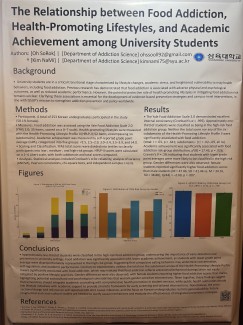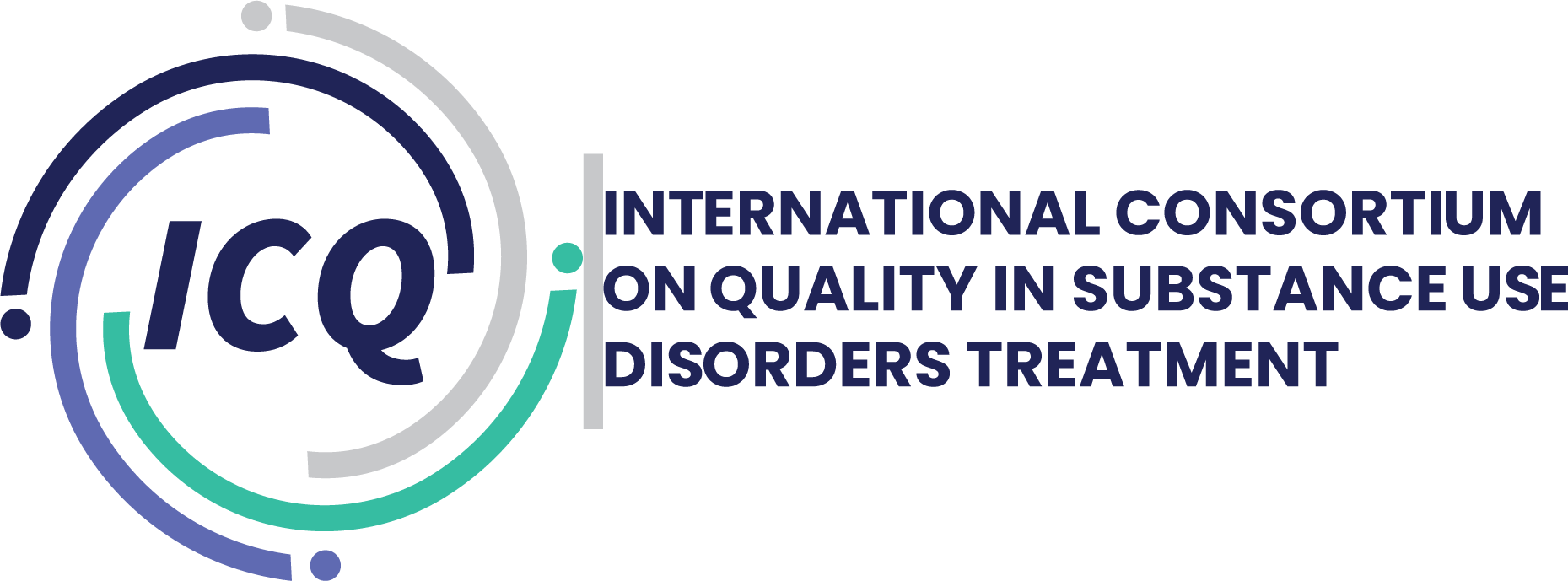The Relationship between Food Addiction, Health Promoting Lifestyles, and Academic Achievement Among University Students

Background
University students are in a transitional stage characterized by lifestyle changes, academic stress, and increased vulnerability to risky health behaviors,
including food addiction. Food addiction has been linked to poor academic performance and adverse health outcomes, yet few studies have examined its relationship with health-promoting lifestyles and academic achievement in young adult populations. Understanding these associations is essential for developing prevention and campus-based intervention strategies, aligning with ISSUP’s mission to strengthen evidence-based approaches in addiction prevention and policy.
Methods
A total of 253 Korean undergraduates (58.1% female) completed the Yale Food Addiction Scale 2.0 (YFAS 2.0), the Health-Promoting Lifestyle Profile II (HPLP-II), and reported their grade point average (GPA). YFAS scores were divided into low (≤ 5), medium (6–17), and high (≥18) risk groups using tertile cutoffs. Group
differences were tested with ANOVA and chi-square analyses.
Results
YFAS demonstrated excellent reliability (α = .995), with about one-third of students classified in the high-risk group. Health-promoting lifestyle scores did not differ
significantly across YFAS groups, F(2, 249) = 0.31, p = .736, η² = .002, and were not correlated with YFAS scores (r = .03, p = .641). In contrast, academic achievement (GPA) was significantly associated with food addiction risk-group distribution, χ²(8) = 17.43, p = .026, Cramér’s V = .19. Students with lower GPA were more likely to be in the high-risk group.
Conclusions
Food addiction risk among university students was significantly associated with academic achievement but not with health-promoting lifestyles. These findings
suggest that prevention strategies should integrate academic support and counseling systems into campus health services to mitigate food addiction risk. At the policy level, universities and public health authorities should develop programs that link lifestyle promotion with academic performance support, emphasizing early screening for at-risk students and providing tailored interventions.
